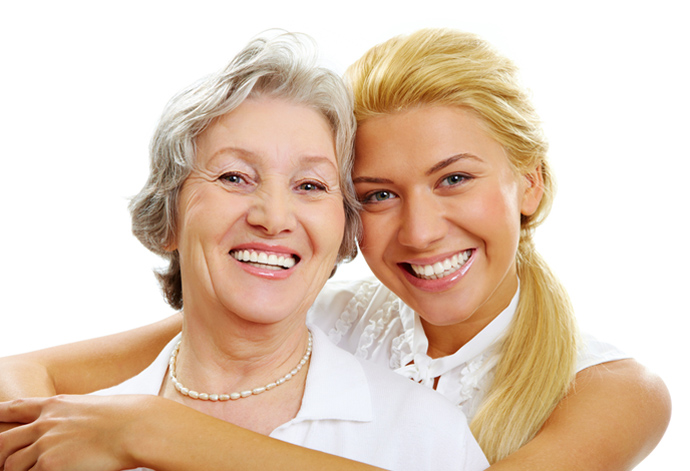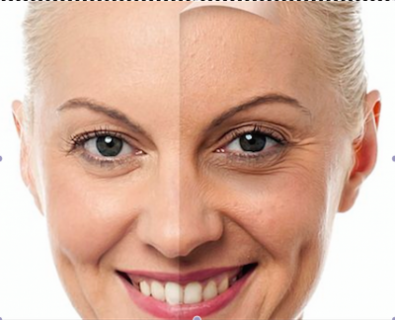Nobody likes to think about wrinkles and signs of aging. However, as much as we hate it, it will happen and looking young forever is not something that actually happens in real life. We are all going to experience the signs of ageing as the years go by. But, because of the different styles of living, climate conditions and high level of stress in modern life, many people suffer from premature skin ageing.
Premature aging happens when our skin looks older for our age. Fine lines, wrinkles and age spots may start appearing on the face even if we’re still on our 30s. According to many dermatologists, the first sign of premature aging is the noticeable loss of glowing complexion. This may get accompany with dark circles, fine lines, excessive dryness and, lack of elasticity.
There are many reasons why people suffer from premature skin aging including poor diet, lack of sleep and rest and everyday stress. But, two of the biggest uncontrollable factors that contribute to premature skin aging are the sun and pollution.
The sun is one of the biggest factors which affects the skin. According to Doris Day, M.D., clinical associate professor of dermatology at New York University Langone Medical Center, UV rays accelerate aging by damaging the cell DNA. This leads to the inability of cells to divide and differentiate so result in line and wrinkles. The other harmful effect of UV rays on the skin is the creation of sunspots. The natural skin response to UV rays is the production of melanin or pigment to protect the cell DNA. Prolonged sun exposure without wearing a sunscreen leads to uneven skin tone, sun spots, and pigmentation that may eventually cause skin cancer.
Many studies and tests have proven that when pollution comes into contact with the skin, it doesn’t just sit on the surface unlike what many would imagine. Instead, these tiny particles, which are not visible to the naked eye, are absorbed by the pores, infiltrating to deeper layers of the epidermis. They would later clog the skin pores, cause inflammation, dehydration and a cellular-level reaction that makes the skin lose its elasticity and firmness.
Pollution, breaks down collagen and the lipid layer in the skin, which impairs skin barrier functions,” says Zoe Draelos, M.D., consulting professor of dermatology at Duke University in Durham, North Carolina, and author of the Journal of Cosmetic Dermatology article “Aging in a Polluted World. So, what can we do to prevent premature skin aging?

- Protect your skin from the sun every day
Whether spending a day at the beach or running around, sun protection is essential. You can protect your skin by seeking shade, covering up with clothing, wearing a hat with a brim and using sunscreen. your Sunscreen should be SPF 30 (or higher), and water-resistant. You should apply sunscreen every day to all skin that is not covered by clothing and needs to be reapplied every 2 hours. It is best to avoid the sun between 10 am to 3 pm when it is the hottest and the UV rays are the strongest.
- Cleanse your skin regularly and properly
It is important to clean your face with a proper cleanser twice daily, morning and night before going to bed. It is also important to clean your skin before and after working out or doing sweat-provoking activities as well.
Be gentle while cleansing and scrubbing your skin as too much exfoliation leads to skin dryness and forms line and wrinkles.
- Choose the right skincare products
Every person’s skin is unique, which needs a specific range of product that caters to their distinct needs. Stop using products just because they are on trend, or because your favourite celebrity endorses them. Know what is your skin type and get a consult with an expert to help you choose the best skin care products that work for you. Make sure your daily care routine includes vitamins such as Vit A, E, and c.
- Have regular professional facial treatment
Skin treatments are like supplements for your skin, preventing premature ageing. A suitable treatment plan is designed based on your skin type and conditions which can be done by a professional skin therapist. Treatments retrain and feed the skin to improve cellular functioning and restoring a healthy, youthful skin.
- Take care of your neck, shoulders, and hands too
Premature skin aging is not only applicable to the face, it can happen to your neck, shoulders, and hands too. The skin on those body areas are thin and sensitive, so it is important to take care of them too. Use your skincare products on your neck and décolletage and moisturise your shoulders and hands before sleep. Don’t forget using a sunscreen on these areas.
- Avoid touching your face
Make it a habit and avoid touching your face and neck. Our hands are exposed to debris and pollution so Keep your hands away from your face and neck to avoid breakouts and other skin problems. Don’t rub your eyes as the skin around your eyes is very delicate and sensitive. Be gentle when you apply your eye cream.
- Avoid repetitive facial expressions.
Too much facial expression can result in premature skin ageing, manifested by fine lines and wrinkles. Stop squinting! Wearing sunglasses and hat can help reduce the lines caused by squinting.
- Develop a healthy, well-balanced diet
Skin is the reflection of what we do to our body. To have a radiant, healthy and young-looking skin, it is essential to maintain a healthy diet. Research shows that fresh fruits and vegetables have a high amount of antioxidant that can combat free radicals (cell-destroying molecules) in our cells and help prevent premature skin aging. Study on carbohydrates and sugar also shows that they can accelerate aging by attaching to the skin proteins such as collagen and elastin and damage skin proteins.
- Drink more water and less alcohol
Water makes the skin more elastic and radiant, while alcohol dehydrates the skin and makes it look dry and dull. 64% of our skin is water and drinking plenty of water and unsweetened tea can improve skin cell’s functions and plumps the skin which results in improving the appearances of fine line and wrinkles. Some controversial studies claim that red wine is a good alternative to other alcohols because of its antioxidants (resveratrol) and anti-aging properties.
- Include regular exercise in your daily routin
Studies show that moderate exercise can improve circulation and boost the immune system. This provides more oxygen and nutrients to the cells and eliminates the wastes more quickly which gives the skin a more-youthful and healthy appearance.

